
Feral Children From History: Wild and Tragic Stories You Won’t Forget
We often associate the term “feral children” with children raised by animals. As crazy as these stories might sound, they aren’t exactly real. There have been many studies about these kids. It turns out that it’s rare they have actually been seen running with wild animals or displaying certain animalistic behaviors. What’s behind these cases is so much sadder — child abandonment.
Many of these kids were left without human contact, often by parents keen on drinking. So, the children turned to some other sources of positive reinforcement, which happened to be wild animals. On the other hand, they don’t have that much parenting sense to “adopt” a baby of a different kind. Yet, the stories about feral kids are eerie and uneasy, no matter the cause.
“Feral Children” is a famous photo project created by German-born, worldwide-known photographer Julia Fullerton-Batten in 2015. This series of staged photos looks like a tale and simultaneously takes a darker look at growing up under unusual circumstances, photographing animals with feral kids in the natural surroundings. Fullerton-Batten gained fame after her “Teenage Stories” series in 2005, which explored a girl’s transition to womanhood.
Marina Chapman, a feral child herself and the author of The Girl With No Name, inspired Fullerton-Batten to search for other cases of feral children. She found that there were quite a few. Some cases resulted from children becoming lost or being snatched by wild animals. Others were due to child abandonment or neglect. The documented cases exist on four continents, each with a factual narrative behind it. Let’s uncover the stories of feral children.
Lobo, The Wolf Girl, Mexico, 1845-1852
In 1845, a girl named Lobo was seen running on all fours with a pack of wolves attacking a herd of goats. A year later, she appeared with a mother wolf eating a goat. She was captured but escaped, as children raised by animals are usually mousy. In 1852, she was seen yet again suckling two wolf cubs. However, she ran into the woods and was never seen again.
Oxana Malaya, Ukraine, 1991
Oxana was found living with dogs in a kennel in 1991. At that time, she was eight and had lived with the dogs for six years. Her parents, who were heavy drinkers, left her outside one night. As she looked for warmth, the three-year-old crawled into the farm kennel and curled up with the mongrel dogs, probably saving her life.
When discovered, she behaved more like a dog than a human child. She ran on all fours, panted with her tongue out, bared her teeth, and barked. As a wild child who has lived in isolation, she could speak very poorly, only a few words, such as “yes” and “no.” Oxana wasn’t able to express a complete sentence.
Intensive therapy aided Oxana in learning basic social and verbal skills. Yet, her speech ability remained that of a five-year-old. The language development stopped permanently. In 2013, Malaya appeared on the national Ukrainian TV show “Govoryt Ukraina” and during the interview, she discussed various aspects of her life. During the interview, she talked about herself, her boyfriend, her experiences in a state foster home, and her work with animals on a farm.
Shamdeo, The Wolf Boy, India, 1972
Shamdeo is widely known as the “wolf boy,” one more feral child who experienced child abandonment. He was discovered in a forest in India in 1972. He was about four years old. Shamdeo survived living with wolf cubs. His skin was very dark, and he had sharpened teeth, long hooked fingernails, matted hair, and calluses on his palms, elbows, and knees.
He was fond of chicken hunting, would eat earth, and had a craving for blood. In 1978, he was admitted to Mother Theresa’s Home for the Destitute and Dying in Lucknow, where he was re-named Pascal. Finally, he weaned off eating raw meat. Unfortunately, his human language was deficient as a feral child who lived without civilization for many years. He never learned to talk but learned some sign language. The wolf boy died in February 1985.
Prava, The Bird Boy, Russia, 2008
Prava, a seven-year-old boy, was found in a tiny, two-bedroom apartment, living with his 31-year-old mother. He was found confined in a room filled with bird cages containing dozens of his mother’s pet birds, bird feed, and droppings. It seemed that the mother abandoned her son and treated him as another pet.
However, he was never physically harmed. The mother neither beat nor left him without food. Still, she isolated him from the real world and never spoke to him. Prava’s only form of communication was with the birds. He could not talk but chirped. When somebody couldn’t understand him, he would wave his arms and hands bird-like. Sent into child care by his mother, Prava was transferred to a center for psychologist help and mental rehabilitation.
Marina Chapman, Colombia, 1959
Marina Chapman was kidnapped from a remote South American village at a very young age. She was left by her kidnappers in the jungle in 1954. Initially, she lived with a family of small capuchin monkeys for five years before hunters discovered her. The girl ate berries, roots, and bananas, slept in tree holes, and walked on all fours.
One time, she got terrible food poisoning. As an ideal example of unexpected encounters with wild animals, an elderly monkey led her to a pool of water and forced her to drink. She vomited and began to recover. Marina was friends with the young monkeys and learned to climb trees and what was safe to eat.
As a feral child, Marina lost her language entirely when hunters rescued her. The hunters sold her into a brothel, but she escaped and lived as a street urchin. Next, she was enslaved and suffered from a mafia-style family before being saved by a neighbor. The neighbor sent Marina to Bogotá to live with his family, who adopted Marina alongside their five children.
When Marina reached her mid-teens, she was offered a job as a housekeeper and nanny by another family member. The family with Marina moved to Bradford, Yorkshire, in the UK in 1977. She married and had children, which actually proves that feral kids can recover. In 2013, Marina and her younger daughter, Vanessa James, co-authored a book, The Girl With No Name, about her experiences as a wild child and her life afterward.
Madina, Russia, 2013
Madina lived with dogs from birth until she was three years old, sharing their food, playing and sleeping with them. When social workers found her in 2013, she was naked, walking on all fours and growling like a dog.
Madina’s father had left soon after her birth. Her mother was frequently too drunk to look after her child and often disappeared. She would frequently invite local alcoholics to visit the house. Her alcoholic mother would sit at the table to eat, drink, and smoke while her daughter gnawed bones on the floor with the dogs.
Madina would run to a local playground when her mother got angry. However, the other children wouldn’t play with her as she could hardly speak and would fight with everyone. Hence, dogs became her best and only friends. Doctors reported that Madina was mentally and physically healthy despite her ordeal.
Genie, USA, 1970
When she was a toddler, Genie’s father decided she was “retarded” and restrained her in a child’s toilet seat in a small room. She lived in solitary confinement for more than ten years. She even slept in that seat. She was 13 years old in 1970 when she and her mother turned up at child services, and a social worker noticed her condition.
She was still not toilet trained, didn’t know how to dress, and moved with a strange sideways “bunny-walk.” Genie couldn’t speak or make any sound and constantly spat and clawed herself. For years, she became a subject of study for researchers. Because language is essential for everyday life, Genie gradually learned to speak a few words but couldn’t arrange them grammatically. She also began to read simple texts and developed a limited form of social behavior.
At one stage, she briefly lived again with her mother but was then, for several years, passed through various foster homes, experiencing abuse and harassment. She returned to a children’s hospital, where Genie was silent. Funding for Genie’s treatment and research stopped in 1974. It was unclear what happened to her until a private investigator located her in a private facility for mentally underdeveloped adults.
The Leopard Boy, India, 1912
The Leopard Boy was two years old when he was taken by a leopard in 1912. Three years later, a hunter killed the leopardess and found three cubs, one of which was the now five-year-old boy. Hunter returned the boy to his family in a small village in India.
When first caught, he would only squat and run on all fours as fast as an adult man could do upright. His knees were covered with hard calluses, his toes were bent upright, and his palms, toe- and thumb-pads were covered with tough, horny skin.
He bit and fought with everyone who approached him, caught and ate the village fowl raw. He could not speak, uttering only grunts and growls. Later, he learned to speak and walked more upright. Sadly, he became gradually blind from cataracts. However, this was not caused by his experiences in the jungle but was an illness that runs in the family.
Sujit Kumar, The Chicken Boy, Fiji, 1978
As a child, Sujit displayed dysfunctional behavior. In response, his parents locked him in a chicken coop. Tragically, his mother took her own life, and his father was murdered. Subsequently, his grandfather took responsibility for him but continued to keep him confined in the chicken coop.
Sujit was eight years old when he was found clucking and flapping in the middle of a road. He pecked at his food, crouched on a chair as if roosting, and would make rapid clicking noises with his tongue. His fingers were turned inward.
Being a mentally disabled and wild child, the boy was taken to an older adults’ home by care workers. However, because he was so aggressive, he was tied with bed sheets to his bed for over 20 years.
Kamala and Amala, India, 1920
Kamala and Amala were found in a wolves’ den in 1920 by Reverend J. A. L. Singh. It is one of the most famous cases of feral children. He estimated Kamala’s age to be around eight years and Amala’s to be about 18 months.
As children raised by animals, the girls were hideous-looking, ran on all fours, and didn’t look human. When first caught, the girls slept curled up together, growled, tore off their clothing, ate raw meat, and howled. Physically deformed, their tendons and the joints in their arms and legs were shortened.
Kamala and Amala had no interest in interacting with humans. But, their hearing, sight, and sense of smell were exceptional. Amala died the following year after their capture. Kamala eventually learned to walk upright and say a few words but died in 1929 of kidney failure at 17.
Ivan Mishukov, Russia, 1998
As there are many examples of isolated families in Russia, Ivan’s family subjected him to abuse and child abandonment, forcing him to run away when he was only four years old. He lived on the streets begging. Ivan developed a relationship with a pack of wild dogs and shared the food he prayed with the dogs.
The dogs grew to trust him, and eventually, he became a pack leader. He lived for two years in this way, but he was finally caught by police and placed in a children’s home. Ivan benefited from the existing language skills that he maintained through begging. The fact that he was a wild child for only a short time aided his recovery.
Marie Angelique Memmie Le Blanc, The Wild Girl of Champagne, France, 1731
Besides her childhood, Memmie’s story from the 18th century is surprisingly well-documented. For ten years, she walked alone through the forests of France, eating birds, frogs, fish, leaves, branches, and roots. Armed with a club, she fought off wild animals, especially wolves.
At the age of 19, the girl was captured. When Memmie knelt to drink water, she made repeated sideways glances, a sign of her constant alertness. She couldn’t speak and communicated only with shrieks and squeaks. She skinned rabbits and birds and ate them raw. For years, she did not eat cooked food. Her thumbs were malformed as she used them to dig out roots and swing from tree to tree like a monkey.
In 1737, the Queen of Poland, mother to the French queen, on a journey to France, took Memmie hunting with her, where she still ran fast enough to catch and kill rabbits. Memmie’s recovery from her decade-long experiences in the wild was remarkable. She had a series of wealthy patrons who teached her to read, write, and speak French fluently.
Like none of the other feral kids, Memmie died financially well-off in Paris in 1775, aged 63. Her case is more controversial than some other feral children because some modern-day scholars have questioned its authenticity, considering it either partially or entirely fictional.
John Ssebunya, The Monkey Boy, Uganda, 1991
John ran away from home in 1988 when he was three years old after seeing his father murder his mother. He fled into the jungle, where he lived with monkeys. He was captured in 1991 at around six years old and placed in an orphanage.
When he was cleaned up, it was found that his entire body was covered in hair. His diet consisted mainly of roots, nuts, sweet potatoes, and cassava. That’s why John had developed a severe case of intestinal worms, found to be over half a meter long. He had calluses on his knees from walking like a monkey. As of 2012, he was fully rehabilitated.
Victor, The Wild Boy of Aveyron, France, 1797
Victor’s case is surprisingly well-documented. Victor was first seen at the end of the 18th century in the woods of Saint Sernin Sur Rance, in the south of France. He was initially captured but managed to escape. On January 8, 1800, he was caught again.
Victor was about 12 years old, his body covered in scars, and he was unable to speak a word. Once news of his capture spread, many researchers came forward wanting to examine him. Little is known about his background during his time as a feral child, but it is believed that he spent seven years in the wild.
A biology professor examined Victor’s resistance to cold by sending him naked outside in the snow. Victor showed no signs of being affected by the cold temperature. Others tried to teach him to speak and behave normally but made no progress. It’s possible that he could talk and hear earlier in his life, but he lost these abilities after returning from the wild. Eventually, he was taken to an institution in Paris and died at 40.
Exploring Common Questions About Feral Children
As we delve deeper into the mysterious world of feral children, a myriad of questions arises, each unveiling new layers of intrigue and wonder. We seek to answer some of the most frequently asked questions surrounding these enigmatic individuals!
Who Is the Most Famous Feral Child?
One of the most famous feral children in history is Victor of Aveyron. His story inspired many books, films, and plays. He also influenced psychology, linguistics, and education, as his case raised questions about the nature and origin of language, the role of socialization in human development, and the ethical treatment of feral children.
Victor had lived alone in the forest for several years. He was found in the woods of southern France in 1800. At the time, he was about 12 years old. He was brought to Paris, where he became the subject of scientific study and education by a physician named Jean-Marc Gaspard Itard. As language and culture is an essential aspect of our civilization, he tried to teach Victor how to speak, read, write, and behave like a civilized human.Unfortunatelly, he had very limited success.
Another well-known feral boy is Dina Sanichar, who was found in a wolf’s cave in India in 1867. Sanichar was sent to the Secundra orphanage at Agra, where he lived among other humans for over twenty years. Unfortunately, Sanichar never learned to speak and act socially. He died of tuberculosis in 1895.
Are There Still Feral Children?
Although they are very rare and hard to find, there are still living feral children in the world today, such as Marina Chapman, 73 years old; Oxana Malaya, 39 years old; Genie Wiley, 66 years old; and Ivan Mishukov, 31 years old.
What Is the Most Recent Feral Child?
As child abandonment isn’t widespread nowadays, the most recent case of a feral child was reported in January 2023, when woodcutters in India found an emaciated, naked girl roaming with monkeys.
However, some experts have doubted the authenticity of this story, as there was no evidence of the girl living with monkeys or being feral. Therefore, the most recent confirmed case of a wild child might be that of Vanya Yudin (2008), also known as Prava, the Bird Boy.
How Many Feral Children Have Been Found?
Feral children are an extremely rare phenomenon, with only around 100 reported cases throughout human history. These cases highlight the extent of our adaptability as a species and the importance of human interaction in our developmental years.
Who Is the Famous Feral Girl?
There are several cases of feral girls in different parts of the world, but one of the most famous and well-studied is Genie Wiley. She is an American who was severely abused and isolated by her father for 13 years. Her story is documented in several books, films, and articles.
910Kviews
Share on FacebookAm I the only one here who thinks these kids were far better off with the animals?? We human are a real scumbag.... Sad, but true story.
Nope. They sounded better off before being taken away from their home, and forced in an institution or to live in society. Or a horrible fate like the girl sold to a brothel!!
Load More Replies...Whoever wrote this article needs to run their pieces by an editor. This thing is riddled with errors. Also, I have a real problem with the lack of citations. These are some extraordinary claims, and evidence is warranted.
I strongly disagree with this sentence: "Marina had lost her language completely by the time she was rescued by hunters. She was sold by the hunters into a brothel, escaped and lived as a street urchin." She wasn't RESCUED, they sold her to a brothel! Most of these kids were doing far better with animals...
I think the better word would be kidnapped.
Load More Replies...Why "rescue" someone who is doing fine? To show them as a curiosity? Most of these kids never got the human skills like speaking or living in society, they would be a lot happier without being "rescued", living with animals...
It's really hard to be able to think rationally at that point. If you, Cit, find a 5 year old living with dogs, wouldn't you take him home or give to social services? I agree that they were in a better place, maybe, i don't know... Butgiving them the best life is a thing we all agree on.
Load More Replies...How are these "dark?" These children still experience a great amount of love and discipline from these animals. They're still alive and surrounded by their "families" which means something is going right!
Honestly? That mother who locked her son with the birds was an as*shole. NGL. Anyone who reads this can agree, and if you don't, you're an as*shole as well. Who locks thier child in a room for years with bird feces and no interaction? I can't believe how shi*ty humans are sometimes. People like that women should never have exist or been born.
I agree, they should have been left alone. So many of them died after being "rescued." This is sad.
I can't believe who ever used Genie to do studies on didn't make sure she was taken care of properly after that. Fuuuck like
I think that a few of these maybe they should have just left them in the wild, they probably would have lived longer, happier lives rather than being confined in mental institutions until they died. Why are humans such control freaks?
Very interesting and disturbing - never knew of any of these cases. Some of these children seem to have been better off with the animals in a natural setting, but all of them must have suffered greatly (the physical handicaps and worms - ick).
To be honest, if I found a feral child that pretty much looked "inhuman" I would campaign that you follow the kid back to where it's living, study it and the animals it lives with...and if anything, dont just take the child... try to replicate it's habitat with new animals in a "zoo" like environment. That way the poor child can transition without tearing it's whole existence apart.
Wish they'd left these children alone. I think they would have been better off with the animals.
I love the photos and the stories are very fascinating. I'm reading more about Genie now. Poor beautiful fragile thing:( Just awful how cruel ppl can be.
Everybody rears everybody. I find it wonderful. Humans are raising sloth, dog, cat, gorilla, and lion whatever and animals do the same.
It definitely isn't "bull." I just googled a couple of these. And I've heard about Genie before. There are videos on YouTube, The Wild Child, which documents the facts about her.
Load More Replies...The kids were way better off with the animals. The humans just wanted to test and experiment and "teach" them stuff. The animals protected, cared for, and loved these poor kids. The kid got sick and died after because of human diseases.
I kind of always feel angry about the people capturing them. Just leave them alone. The life out there with loyal animals is A LOT better then the life of a normal human being who has to pay taxes and care for stupid things. These Kids are heroes to me.
This is easily the best post I have ever seen on BP. I will share this with my co-teachers with a focus on resilience. The extraordinary resilience shown by these children demonstrates the ability of the human brain to adapt to circumstance. This also illustrates how important the early years are for brain development.
Kamala and Amala were 8 years old and 18 months old, not 8 and 12 years old…
Genie does not qualify as a "feral" child. There is nothing wild about being raised in solitary confinement. Nevertheless, I thought the stories and photographs were provocative. Thanks for sharing.
I personally know Sujit and Elizabeth Clayton. He loves her and understands how much better his life is with Elizabeth in his life. She functions as a guardian. He has a Male caregiver that he lives with. The picture posted is completely inaccurate.
POOR, POOR CHILDREN . We can't imagine what these precious children have been through
Not to be to skeptical - but if all the children in these photos were photographed in the environment they were found in - where did they get clothes? You would assume that they would not have clothes that fit them? Just wondering????
These are staged photographs based on the stories.
Load More Replies...Oh my God. The person that wrote this should be ashamed for publishing it without checking... The language was horrible!
They are. If you read the introduction, it says these are staged photos. These aren't documented photos takes at the time and place of their happening, they are recently made artistic photos, with hired models and such, with the intention of telling true stories. It's like, you know, when you see at the beginning of a film when it says "this is based on a true story".
Load More Replies...Duh they're photoshopped, people staged them to tell a story. Read the intro.
Load More Replies...Am I the only one here who thinks these kids were far better off with the animals?? We human are a real scumbag.... Sad, but true story.
Nope. They sounded better off before being taken away from their home, and forced in an institution or to live in society. Or a horrible fate like the girl sold to a brothel!!
Load More Replies...Whoever wrote this article needs to run their pieces by an editor. This thing is riddled with errors. Also, I have a real problem with the lack of citations. These are some extraordinary claims, and evidence is warranted.
I strongly disagree with this sentence: "Marina had lost her language completely by the time she was rescued by hunters. She was sold by the hunters into a brothel, escaped and lived as a street urchin." She wasn't RESCUED, they sold her to a brothel! Most of these kids were doing far better with animals...
I think the better word would be kidnapped.
Load More Replies...Why "rescue" someone who is doing fine? To show them as a curiosity? Most of these kids never got the human skills like speaking or living in society, they would be a lot happier without being "rescued", living with animals...
It's really hard to be able to think rationally at that point. If you, Cit, find a 5 year old living with dogs, wouldn't you take him home or give to social services? I agree that they were in a better place, maybe, i don't know... Butgiving them the best life is a thing we all agree on.
Load More Replies...How are these "dark?" These children still experience a great amount of love and discipline from these animals. They're still alive and surrounded by their "families" which means something is going right!
Honestly? That mother who locked her son with the birds was an as*shole. NGL. Anyone who reads this can agree, and if you don't, you're an as*shole as well. Who locks thier child in a room for years with bird feces and no interaction? I can't believe how shi*ty humans are sometimes. People like that women should never have exist or been born.
I agree, they should have been left alone. So many of them died after being "rescued." This is sad.
I can't believe who ever used Genie to do studies on didn't make sure she was taken care of properly after that. Fuuuck like
I think that a few of these maybe they should have just left them in the wild, they probably would have lived longer, happier lives rather than being confined in mental institutions until they died. Why are humans such control freaks?
Very interesting and disturbing - never knew of any of these cases. Some of these children seem to have been better off with the animals in a natural setting, but all of them must have suffered greatly (the physical handicaps and worms - ick).
To be honest, if I found a feral child that pretty much looked "inhuman" I would campaign that you follow the kid back to where it's living, study it and the animals it lives with...and if anything, dont just take the child... try to replicate it's habitat with new animals in a "zoo" like environment. That way the poor child can transition without tearing it's whole existence apart.
Wish they'd left these children alone. I think they would have been better off with the animals.
I love the photos and the stories are very fascinating. I'm reading more about Genie now. Poor beautiful fragile thing:( Just awful how cruel ppl can be.
Everybody rears everybody. I find it wonderful. Humans are raising sloth, dog, cat, gorilla, and lion whatever and animals do the same.
It definitely isn't "bull." I just googled a couple of these. And I've heard about Genie before. There are videos on YouTube, The Wild Child, which documents the facts about her.
Load More Replies...The kids were way better off with the animals. The humans just wanted to test and experiment and "teach" them stuff. The animals protected, cared for, and loved these poor kids. The kid got sick and died after because of human diseases.
I kind of always feel angry about the people capturing them. Just leave them alone. The life out there with loyal animals is A LOT better then the life of a normal human being who has to pay taxes and care for stupid things. These Kids are heroes to me.
This is easily the best post I have ever seen on BP. I will share this with my co-teachers with a focus on resilience. The extraordinary resilience shown by these children demonstrates the ability of the human brain to adapt to circumstance. This also illustrates how important the early years are for brain development.
Kamala and Amala were 8 years old and 18 months old, not 8 and 12 years old…
Genie does not qualify as a "feral" child. There is nothing wild about being raised in solitary confinement. Nevertheless, I thought the stories and photographs were provocative. Thanks for sharing.
I personally know Sujit and Elizabeth Clayton. He loves her and understands how much better his life is with Elizabeth in his life. She functions as a guardian. He has a Male caregiver that he lives with. The picture posted is completely inaccurate.
POOR, POOR CHILDREN . We can't imagine what these precious children have been through
Not to be to skeptical - but if all the children in these photos were photographed in the environment they were found in - where did they get clothes? You would assume that they would not have clothes that fit them? Just wondering????
These are staged photographs based on the stories.
Load More Replies...Oh my God. The person that wrote this should be ashamed for publishing it without checking... The language was horrible!
They are. If you read the introduction, it says these are staged photos. These aren't documented photos takes at the time and place of their happening, they are recently made artistic photos, with hired models and such, with the intention of telling true stories. It's like, you know, when you see at the beginning of a film when it says "this is based on a true story".
Load More Replies...Duh they're photoshopped, people staged them to tell a story. Read the intro.
Load More Replies...
 Dark Mode
Dark Mode 

 No fees, cancel anytime
No fees, cancel anytime 


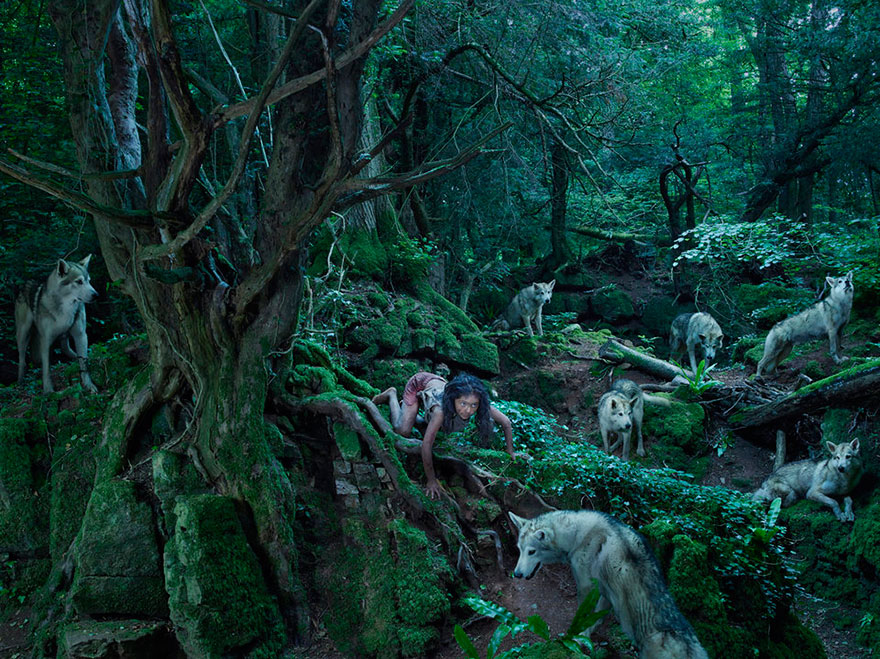
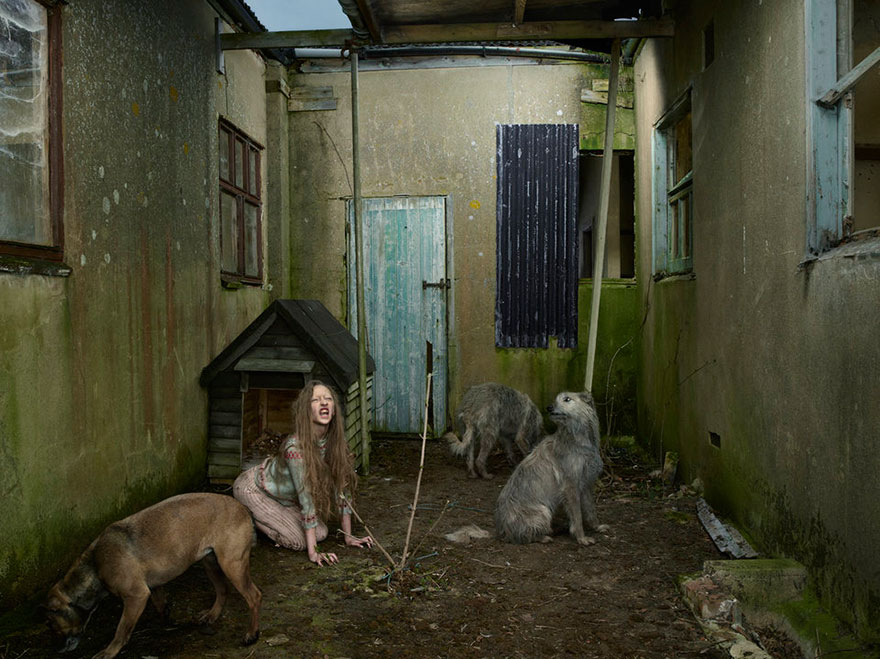

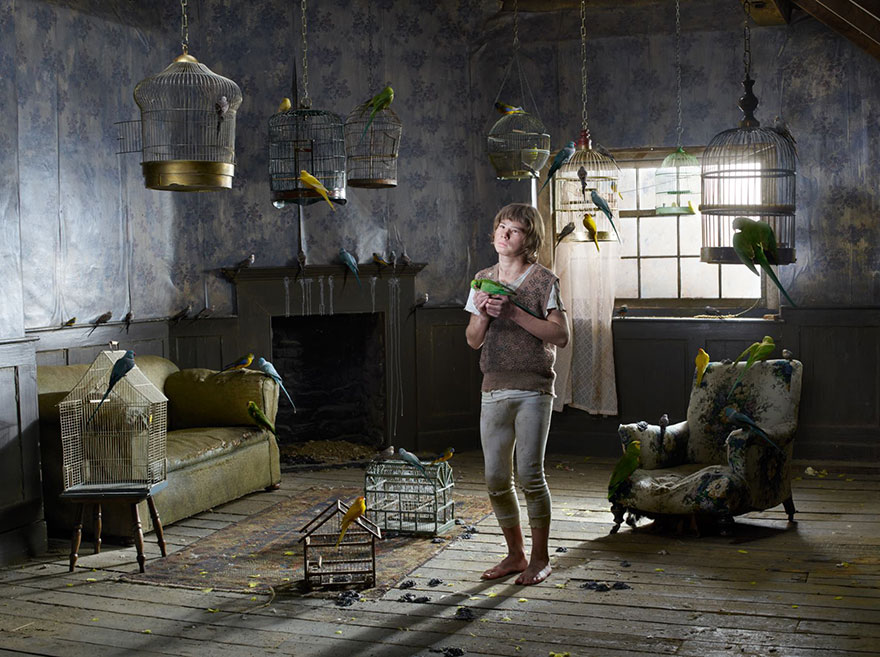
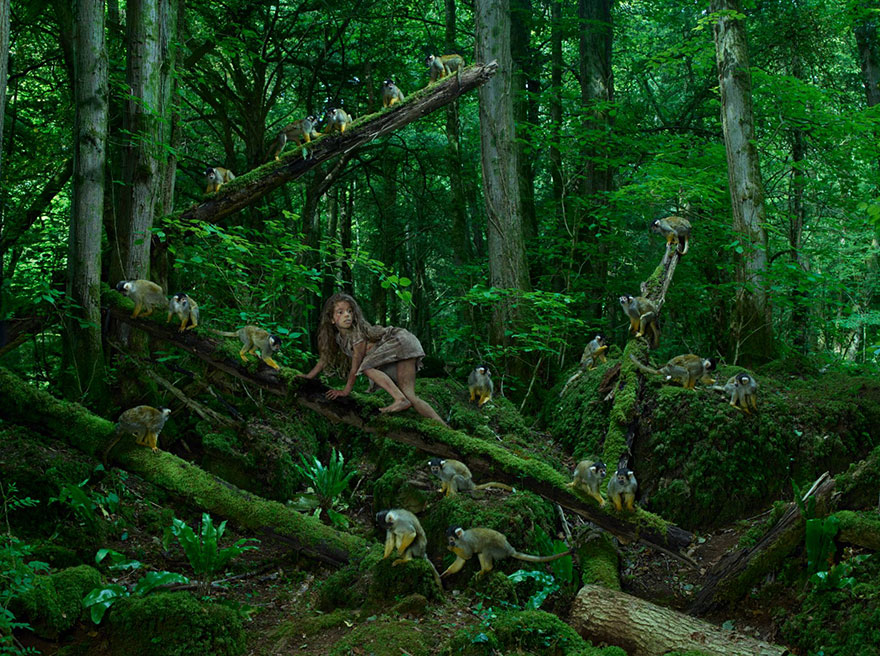
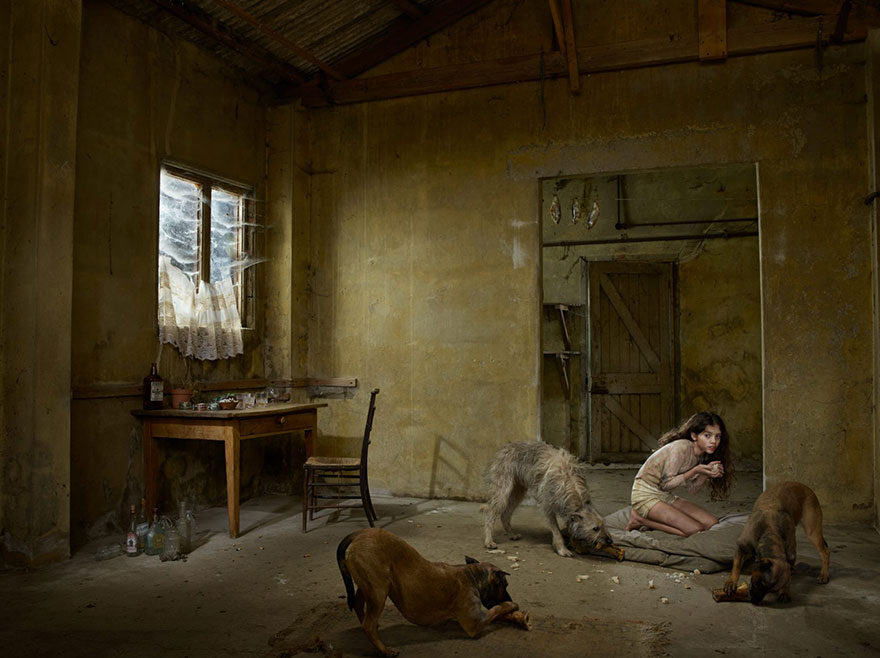
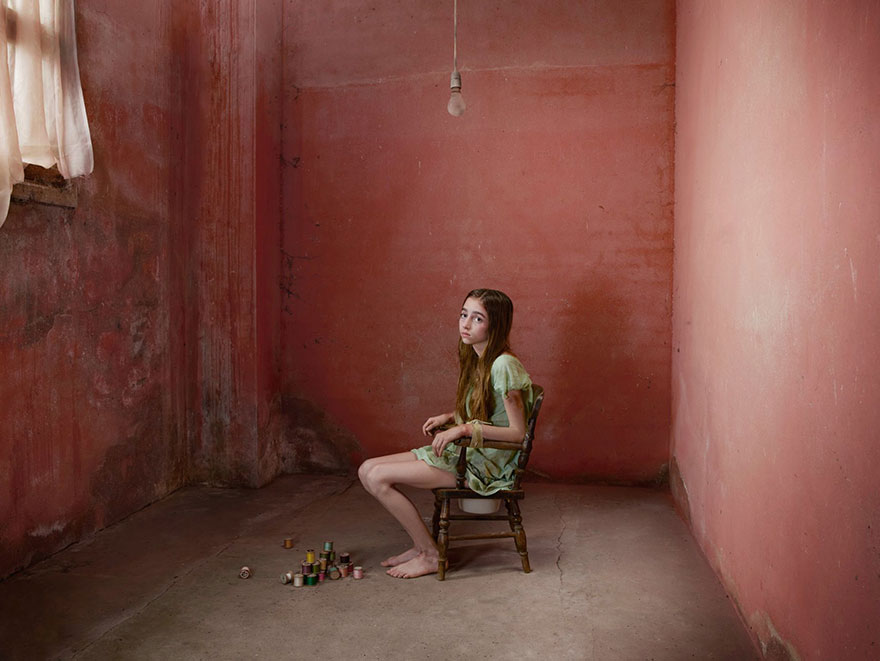
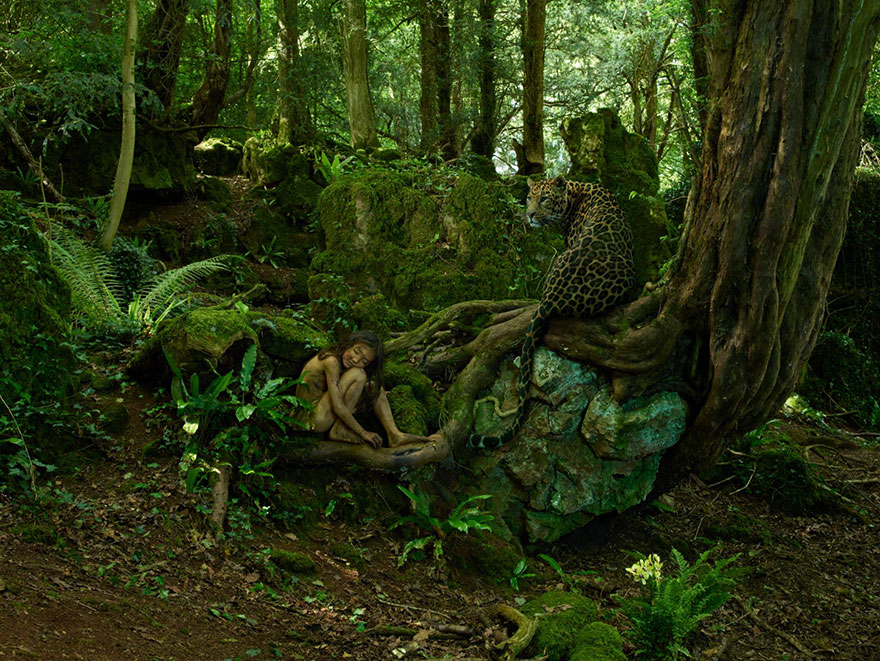
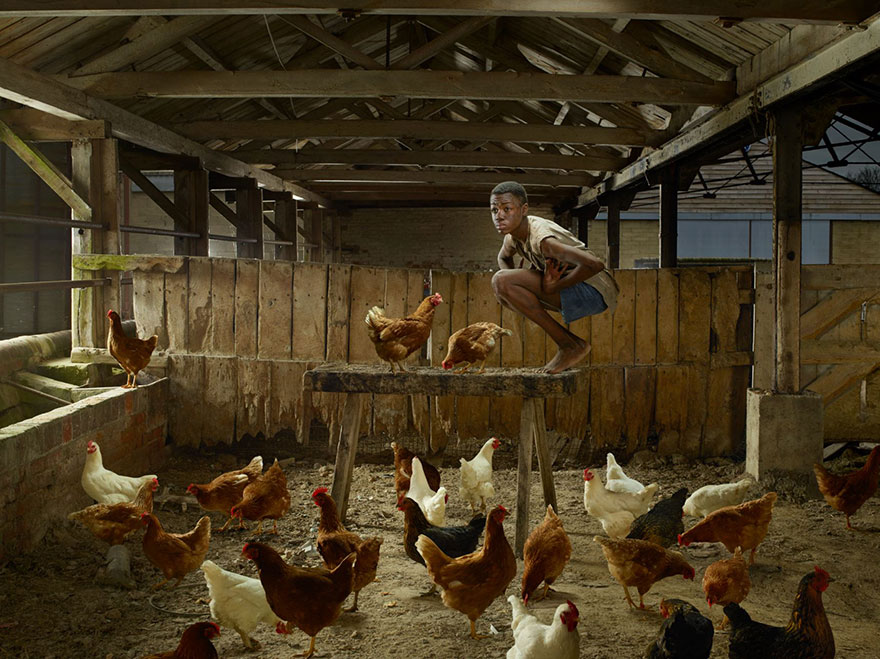
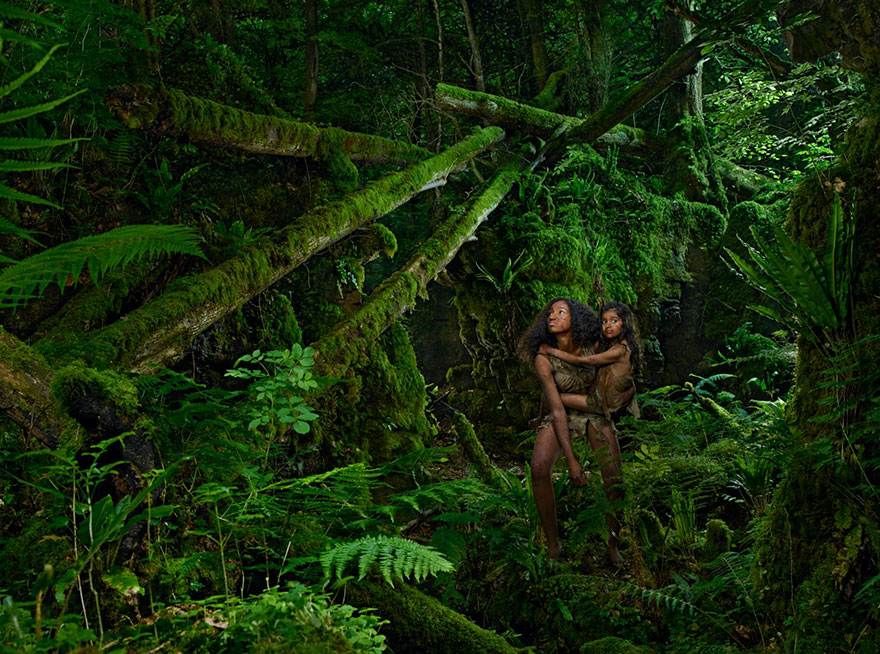
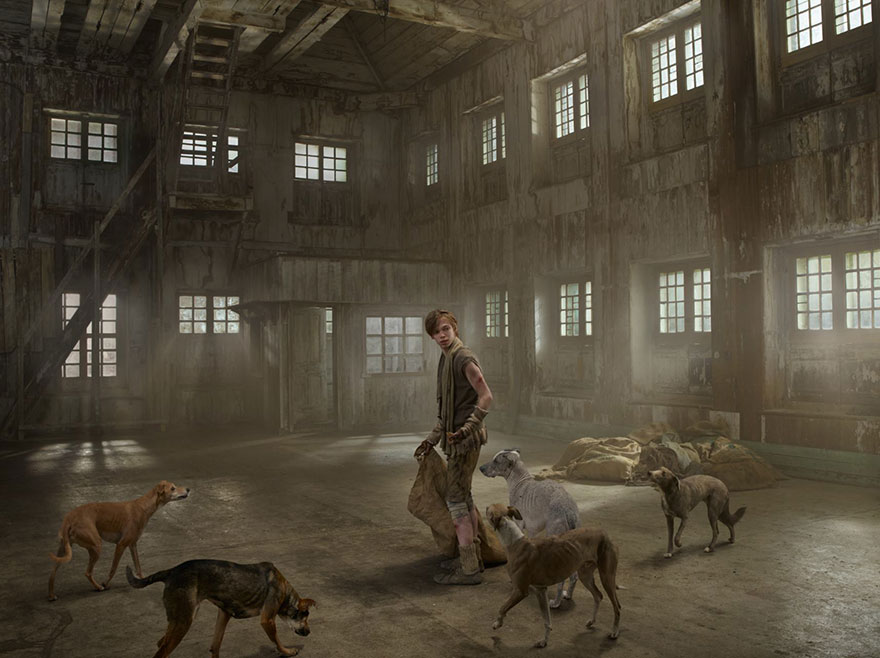
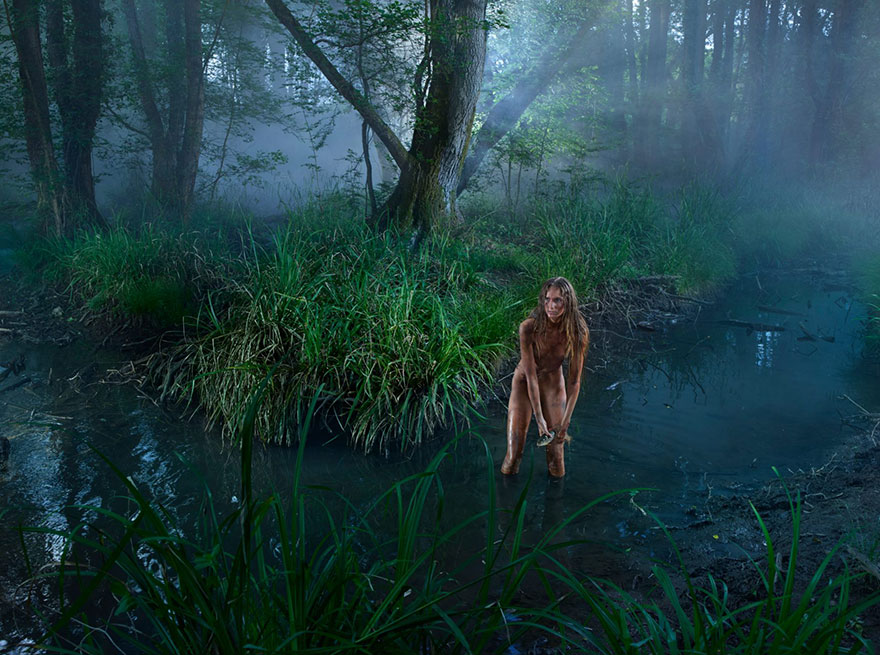
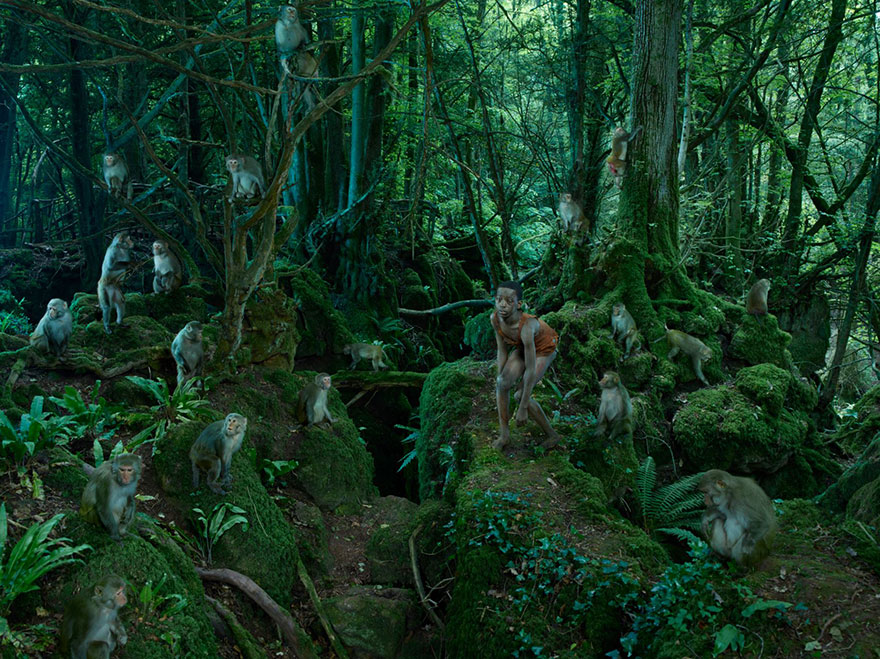
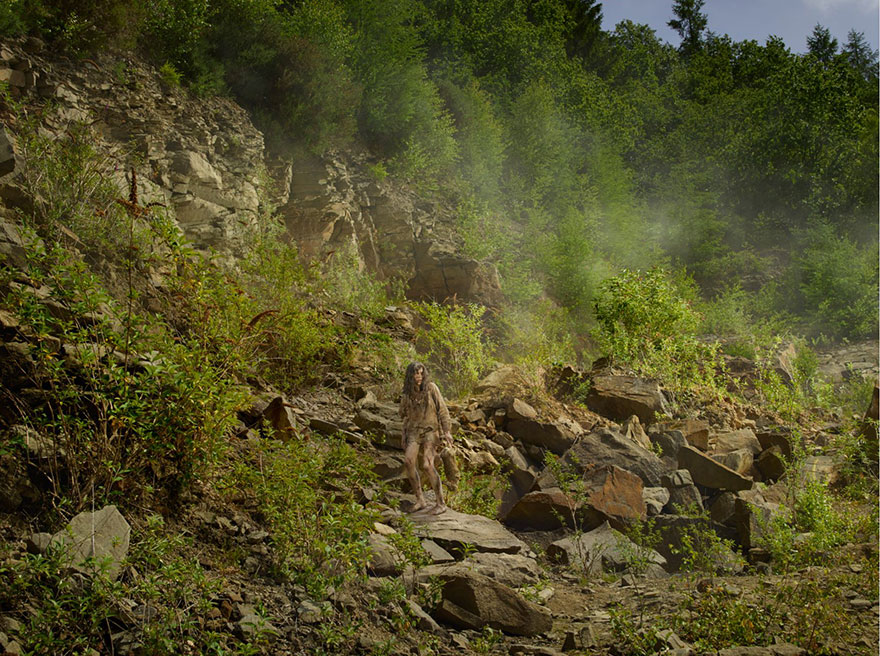







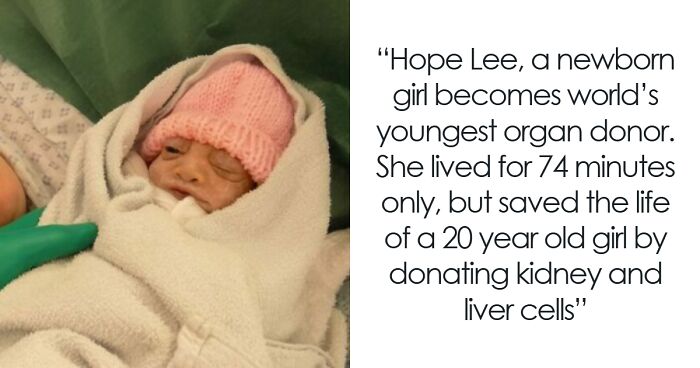









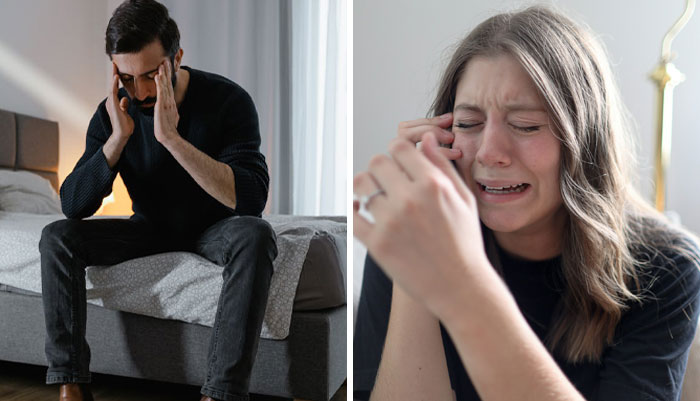
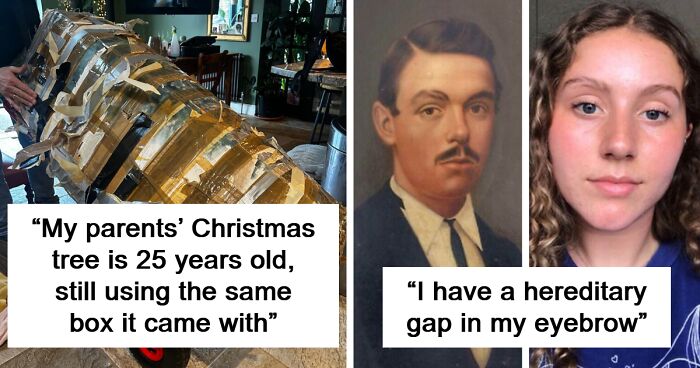
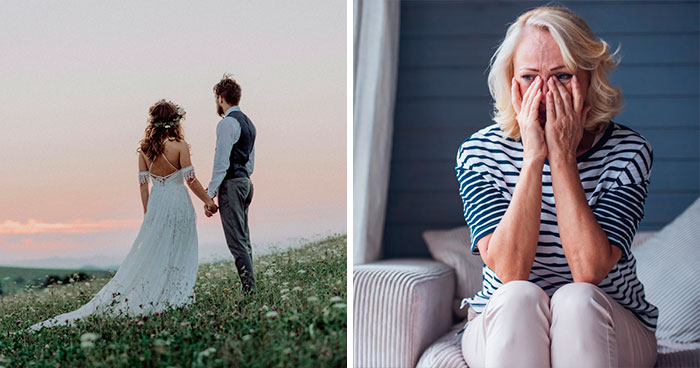

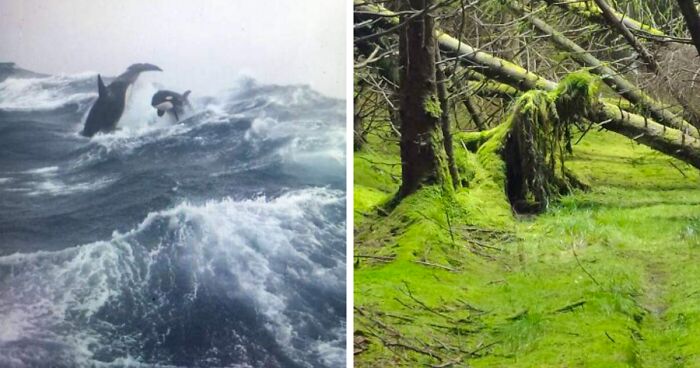
466
87